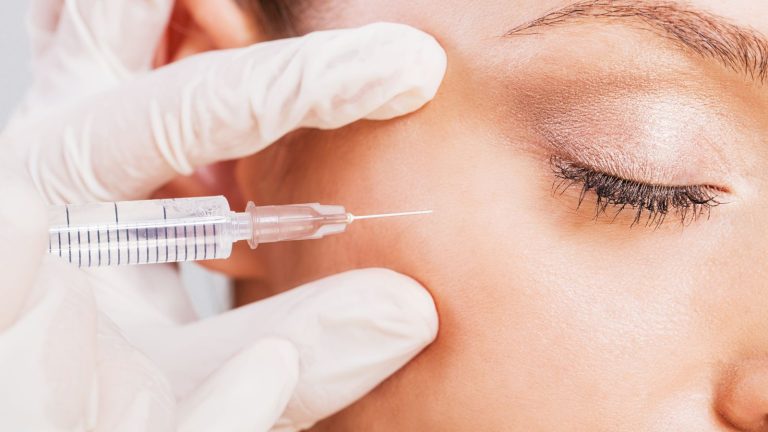Plans to ban unlicensed botox and filler providers in England have been opened for consultation by the government in a bid to protect the public from botched procedures.
ONE law change last year gave the health secretary the power to introduce a licensing regime, which would require anyone carrying out certain treatments and their premises to register.
Beauty professionals and people who have undergone non-surgical cosmetic procedures including Botox, laser hair removal and dermal fillers are now being asked to share their views on how to make the industry safer.
An estimated 900,000 Botox injections are carried out in the UK each year and Save Face – a government-approved register of accredited practitioners – received almost 3,000 complaints in 2022.
Over two-thirds of these are related to dermal fillers and almost a quarter are related to Botox.
Health Secretary Maria Caulfield said: “Whether it’s Botox, dermal fillers or even a chemical peel, we’ve heard too many stories of people who have had bad experiences of cosmetic surgery by someone who is inexperienced or inadequate.
“There is no doubt that cosmetic surgery is growing in popularity, so our role is to ensure consistent standards for consumers and a level playing field for businesses and professionals.
“We want to make sure we get this right for everyone, so we want to hear your views and experiences through our new consultation.”
He has previously highlighted how the spread of images online via social media has led to an increase in demand for Botox and fillers.
The eight-week public consultation will play a key role in shaping new regulations, which could include age limits and restrictions on high-risk procedures, including those involving the injection of fillers into sensitive body parts such as the breasts and arms. buttocks.
Read more health news:
Nottingham maternity scandal: Families still tell of ‘poor care’
Patients in cardiac arrest should be taken to the nearest A&E
The government already has made it illegal perform Botox injections and filler treatments on people under 18 for cosmetic purposes and prohibited advertising targeting children with advertisements for such procedures.
Professor David Sines, chairman of the Joint Council for Cosmetic Doctors, said he welcomed the government’s decision to consult further.
“It will help ensure that people undergoing non-surgical cosmetic procedures are treated by professionals who are properly trained and qualified, have the necessary insurance cover and operate from premises that are safe and hygienic,” he said.
Save Face director Ashton Collins said: “As the largest and longest-running Professional Standards Authority recognized register, we are able to provide a unique level of knowledge based on 10 years of data collection from doctor and clinic inspections, as well as patient reported complaints , side effects and complications.
“This will enable us to help develop a fit-for-purpose scheme with public safety as a primary objective. We look forward to continuing to work closely with the Government and key stakeholders during the next stages of the process.”

